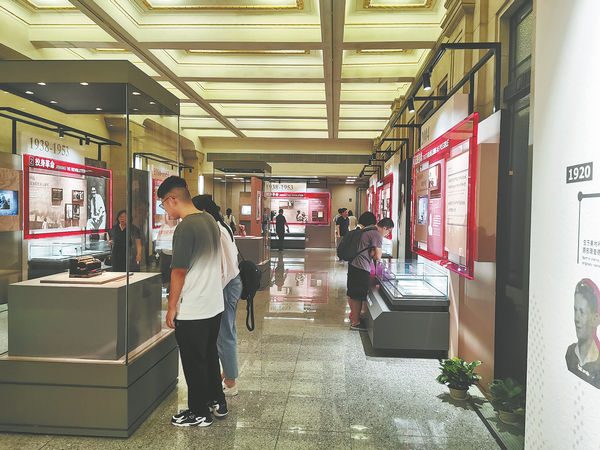

Since 2019, Frey's widow Jiang Guozhen donated 171 objects, including his manuscripts, photographs and correspondence, to the Shanghai Jewish Refugees Museum, co-organizer of the exhibition. "I hope more people can learn about Frey and many other international friends who stayed and devoted their lives to China," Jiang said at the exhibition opening.
"With the showcase of carefully selected objects from Jiang's collection, we created this exhibition about Frey, who was greatly attached to the Chinese people and relentlessly worked for the Chinese revolution, construction and reform for most of his life."
Known famously by his Chinese name Fu Lai, Dr Frey was born in Vienna in 1920. He left Austria after the country's annexation to Nazi Germany in 1938. "At just 18 years old, he fled from Nazi persecution and found refuge in Shanghai, a city that became a haven for thousands of European Jews," says Teresa Marie Bauer, deputy consul general at the Austrian Consulate General in Shanghai. "In a time of great uncertainty and hardship, Richard Frey demonstrated extraordinary courage and determination. … During his work as a doctor, he was a significant support not only to the Jewish community but also to Chinese people. His work in healthcare, especially caring for the poor and sick during difficult times, is a shining example of humanitarianism, commitment and solidarity."
In China, he worked in Shanghai, Tianjin and Beijing and participated in medical rescue against Japanese invaders during the War of Resistance Against Japanese Aggression. In 1941, he arrived at the CPC-led Jin-Cha-Ji anti-Japanese operations base, where he took the name Frey and worked as a faculty member at the medical school founded by Canadian surgeon Norman Bethune. Jin-Cha-Ji is the area joining Shanxi and Hebei provinces and the Inner Mongolia autonomous region. Recommended by Marshal Nie Rongzhen, Frey joined the Communist Party of China in 1944.
In 1945, Frey established a biochemistry laboratory in Yan'an, Shaanxi province, a CPC revolution base, together with two assistants. They successfully produced crude penicillin for the first time in China, saving the lives of Chinese soldiers with infected wounds.